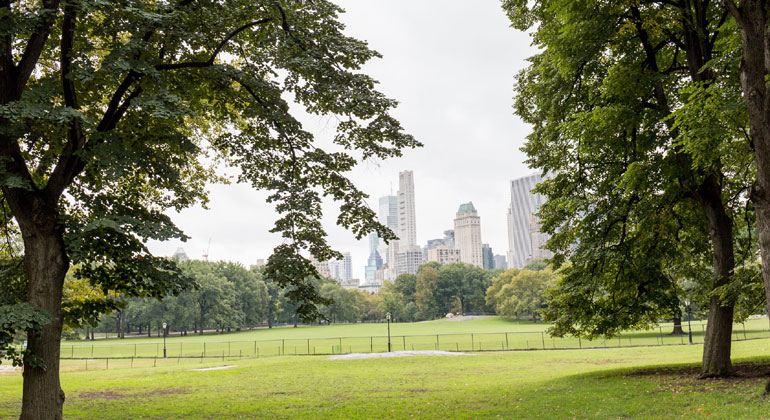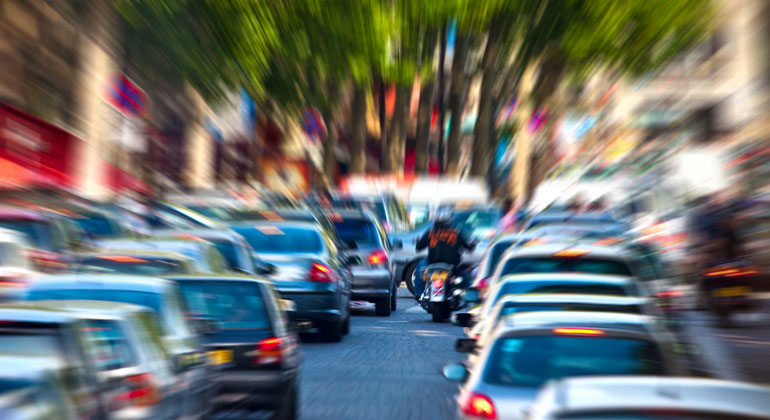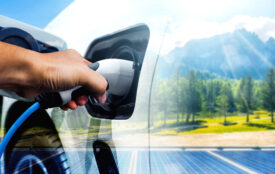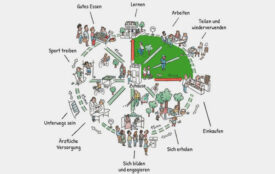It is not migrants who are burdening the cityscape, but climate change
Chancellor Friedrich Merz and his wife Charlotte have three children, including two daughters and seven grandchildren. The Chancellor has a problem with foreigners living in this country without a residence permit.
He said: “Ask your children, ask your daughters, ask your friends and acquaintances, they will all confirm that this is a problem.” For the Chancellor and leader of a party that calls itself Christian, this problem has something to do with integration. There is a problem with the “cityscape.” In a recent survey, 63 percent of Germans agreed with him, with more older people than younger people.
Of course, German local politicians have other problems besides those that the Chancellor claims to have identified in the “cityscape.” But these are largely ignored or suppressed by him and his current government.
For example, in our cities, more and more areas are so heavily sealed and concreted over that they are no longer protected from flooding and inundation during heavy rainfall, which is becoming more frequent and intense due to climate change. Insurance companies have calculated that the costs and damage caused by this are increasing year after year. More and more trees that could provide shade and cooling are dying in cities. We need plants on our houses, trees in our cities, and more greenery on our facades. But the federal government is paying less and less attention to this.
Increasing car traffic in German cities
In fact, increasing car traffic is increasingly shaping the German cityscape. In 2024, the transport sector alone in Germany caused more than 125 million tons of CO2 emissions. Climate-damaging traffic is taking up more and more space in Germany. This has also been calculated by the German government’s expert council on climate issues, which writes: If this development is not slowed down, the goal of climate neutrality in 2045 will be significantly missed. Until now, the German government had stipulated that emissions must be gradually reduced by 65 percent by 2030 and by 88 percent by 2045 – compared to 1990 levels.
Der Spiegel also writes: “In the interests of our daughters and children, we should leave them a planet that is a good place to live.” But the German government is currently doing the opposite. The chancellor, who is so concerned about the cityscape, wants the EU to postpone the 2035 ban on combustion engines. But this would further darken and deteriorate the cityscape.
If “daughters” are so close to the Chancellor’s heart, as he has just said, then as the head of government of a major industrialized country, he could ensure that daughters and sons still have a good climate tomorrow. This includes the rapid expansion of public transportation and fewer cars. There can be no energy transition without a transport transition. Other major cities such as Paris, Amsterdam, Stockholm, Oslo, and London have shown that things can be done better than they have been in Germany so far.
Mr. Chancellor, it is not migrants who are damaging the cityscape, but primarily the lack of climate-friendly transport policy in this country. This lack of a transport transition is in fact a danger to the life and limb of a great many people. Health in our cities primarily means healthy air, clean water, and nutritious food. This is not the opinion of eco-freaks, but of renowned and intelligent economists. What really endangers our health and will ruin our prosperity is the loss of biodiversity, extreme weather events, and climate change.
If we do not succeed in stopping climate change, then in the future so many millions of climate refugees will come to us that we will no longer be able to recognize our “cityscape.”
Source
Franz Alt 2025| Translated with www.DeepL.com/Translator









